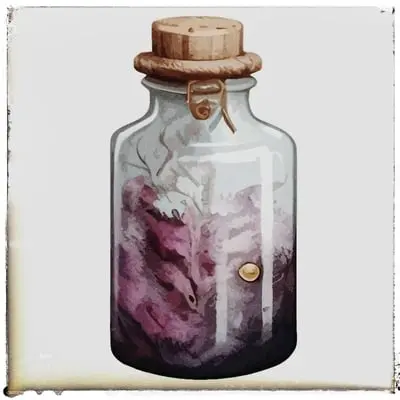But how many new shows did Netflix launch?
It they cancelled 16 shows, but launched 18, that’s rough. If they cancelled 16 shows but launched 32, that might be ok.
We also have to compare to others services and other years to see really come to a conclusion.
Also this article mixes together shows that are getting a final season and ones that are cancelled. A show coming to a logical ending is great.
And in one instance a show was renewed for two more seasons, the second of which would be it’s last. Is that show really cancelled for 2024?
Also again, do the cancellations have anything in common? Did Netflix spend the past X years trying to create a specific genre of show and now they’re giving up or found that they failed?
I’m as frustrated as anyone that shows I like are cancelled or that streaming services cancelled before they can figure themselves out, but articles like these are so frustrating. They pretend to be informative but really tell you nothing useful.
If they cancelled 16 shows but launched 32, that might be ok.
If it’s all reality TV and procedurally engineered slop, replacing the auteur films and exciting serials, I’d disagree.
Great piece out on N+1 explaining why Netflix queues have been so bizarre and repulsive as of late.
The difference between Netflix and its predecessors is that the older studios had a business model that rewarded cinematic expertise and craft. Netflix, on the other hand, is staffed by unsophisticated executives who have no plan for their movies and view them with contempt. Cindy Holland, the first employee Sarandos hired, who eventually served as vice president of original content, once compared Netflix’s rapacious DVD acquisition strategy to “shoveling coal in the side door of the house.” This remained true as Netflix ramped up its original-film production. In researching this essay, I was told by sources about two high-level Netflix executives who have been known to green-light projects without reading the scripts at all.
Such slipshod filmmaking works for the streaming model, since audiences at home are often barely paying attention. Several screenwriters who’ve worked for the streamer told me a common note from company executives is “have this character announce what they’re doing so that viewers who have this program on in the background can follow along.” (“We spent a day together,” Lohan tells her lover, James, in Irish Wish. “I admit it was a beautiful day filled with dramatic vistas and romantic rain, but that doesn’t give you the right to question my life choices. Tomorrow I’m marrying Paul Kennedy.” “Fine,” he responds. “That will be the last you see of me because after this job is over I’m off to Bolivia to photograph an endangered tree lizard.”)
One tag among Netflix’s thirty-six thousand microgenres offers a suitable name for this kind of dreck: “casual viewing.” Usually reserved for breezy network sitcoms, reality television, and nature documentaries, the category describes much of Netflix’s film catalog — movies that go down best when you’re not paying attention, or as the Hollywood Reporter recently described Atlas, a 2024 sci-fi film starring Jennifer Lopez, “another Netflix movie made to half-watch while doing laundry.” A high-gloss product that dissolves into air. Tide Pod cinema.
That’s another good point and what I was getting at in terms of patterns.
Without a clear breakdown of what is being added and what is being removed (on a category level) it’s difficult to really know what these cancellations mean.
My personal metric for subscribing to a streaming service is “one new show per month”, but that rule has the implied “…that I want to watch”.
If Netflix is only adding garbage I don’t want to watch, it doesn’t really matter. (As a side note I don’t currently subscribe to Netflix after it failed the above metric a few years ago, it may have shows I’d watch now, but I don’t miss it enough to go back and look.)
So much of Netflix front page is just “Do you want these cheapo cell phone games instead of shows?” right now.
Definitely feels like they’re scraping the bottom of the barrel
They probably have the data to back up that not everyone wants to watch prestige TV all the time, so they are giving the audience what it wants.
they are giving the audience what it wants
They just won’t release the numbers on individual shows.
Do they have to? They are a private company making entertainment. Unless they are paying people based on the number of views, I don’t see why that information has to be public.
Found this article with additional data in the meantime: https://www.whats-on-netflix.com/news/netflix-library-by-the-numbers-2024/
This does help paint a better picture, but they clearly use different units so it’s tough to compare.
Although even if I’m generous with how I compare I don’t see how Netflix added 238 original “items” in 2024. There must be a lot of cheap content or Netflix license/branded content after the fact.
Also the article makes another good point,
Basically, it is currently impossible to tell the difference between a single season and a Limited Series on Netflix as their labeling is inconsistent.
Similar to the finale problem, you can’t just assume a show that stops after “one season” was cancelled, it might just have been one season. (Of course some miniseries get extended, so that’s also tricky.)
deleted by creator
I don’t think they care if you watch a show, just if you sign up to watch.
The financials for streaming are a lot different than the financials for broadcast and cable.
Most broadcast live action shows wanted to get to 100 episodes since it meant that the shows would get watched in syndication. Networks were also usually better in letting shows develop over multiple sessions, including advertising and schedule placement.
With streaming, there isn’t that variance in secondary markets. If a show doesn’t pull an audience, it gets pulled a lot quicker since the payoff of sticking with the show isn’t there.
Avatar (Renewed for 2 seasons, ending after third season)
That’s not “Canceled”. That’s the full run of the show. Although it really should have be canceled before S01.
And yet people still happily pay. Most of here probably not, but we’re not the average consumer
Doesn’t even count shows like Grendel which were cancelled before they could even air. :(
It’s like when you’re taking a shit and your toddler is like, “I need to go pee pee!” and you’re like, “why didn’t you go when I asked you to then?” and no matter the answer you still have to cut off the turd mid-crappening
Other than Arcane, I haven’t seen a good show out of Netflix in a long time. So many of them are dysfunctional and twisted, and weird, and stupid.






